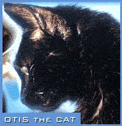Deborah Howard—founder-president of the Companion Animal Protection Society (CAPS), self-described, you may recall, as “the only national nonprofit organization dedicated exclusively to protecting companion animals from cruelty in pet shops and puppy/kitten mills”—returns for a conversational sequel to our January interview, because we didn’t have time to discuss the ways CAPS has broadened its mission in recent years.  Being careful not to assume everyone listening this time had also heard the January
Being careful not to assume everyone listening this time had also heard the January conversation, we spent the initial moments addressing CAPS’ core mission, engaging in a lightening round of Puppy Mills 101. This led to Howard issuing cautionary tales about pet shops, pet store chains, and online puppy sales, about which CAPS has produced a documentary, slated to be available on YouTube, Vimeo, and the organization’s social media pages.Howard makes it clear that the dark problems with puppy mills—weak, often sick dogs, bred incessantly in vile, stinky, caged circumstances, devoid of human interaction or socialization—have been exacerbated in the internet age, with websites displaying idyllic settings from which these pooches-for-purchase ostensibly emerge. Heck, even Craig’s List is a problematic source of puppy mill dogs in this way, Howard notes. In what may constitute a natural outgrowth of this work combatting puppy mills that Howard has been doing since 1989, CAPS has moved into animal shelter reform in California—producing a short documentary on this topic. A focus of these efforts has been Kern County Animal Services (KCAS), in Bakersfield, which sounds like a facility that’s really jumped the rails: metal buildings (it can get blazing hot there), no regular
conversation, we spent the initial moments addressing CAPS’ core mission, engaging in a lightening round of Puppy Mills 101. This led to Howard issuing cautionary tales about pet shops, pet store chains, and online puppy sales, about which CAPS has produced a documentary, slated to be available on YouTube, Vimeo, and the organization’s social media pages.Howard makes it clear that the dark problems with puppy mills—weak, often sick dogs, bred incessantly in vile, stinky, caged circumstances, devoid of human interaction or socialization—have been exacerbated in the internet age, with websites displaying idyllic settings from which these pooches-for-purchase ostensibly emerge. Heck, even Craig’s List is a problematic source of puppy mill dogs in this way, Howard notes. In what may constitute a natural outgrowth of this work combatting puppy mills that Howard has been doing since 1989, CAPS has moved into animal shelter reform in California—producing a short documentary on this topic. A focus of these efforts has been Kern County Animal Services (KCAS), in Bakersfield, which sounds like a facility that’s really jumped the rails: metal buildings (it can get blazing hot there), no regular  spay/neuter procedures, dramatically low save rate, overcrowded, often filthy enclosures, riddled with urine and feces…When Howard is asked what led the Kern County Animal Services to stumble so far astray—I suggest possible explanations might involve budget problems, leadership issues, shelter &/or county policies—she speculates that it’s likely a combination of those factors. She adds that given its Central California location, she was surprised to find that none of KCAS’ handouts or literature were offered in Spanish. Howard underscores how important she feels—as another element of CAPS’ widening mission: pursuing national Latino outreach—that important documents, PSAs, spots for radio & TV, should be produced in both English and Spanish. To that end, CAPS enlisted Jacqui Pinol, the animal advocate and bilingual actress, to record spay/neuter PSAs for TV and radio, in English and Spanish. (https://www.caps-web.org/, https://www.instagram.com/caps_web/, https://www.facebook.com/CompanionAnimalProtectionSociety)
spay/neuter procedures, dramatically low save rate, overcrowded, often filthy enclosures, riddled with urine and feces…When Howard is asked what led the Kern County Animal Services to stumble so far astray—I suggest possible explanations might involve budget problems, leadership issues, shelter &/or county policies—she speculates that it’s likely a combination of those factors. She adds that given its Central California location, she was surprised to find that none of KCAS’ handouts or literature were offered in Spanish. Howard underscores how important she feels—as another element of CAPS’ widening mission: pursuing national Latino outreach—that important documents, PSAs, spots for radio & TV, should be produced in both English and Spanish. To that end, CAPS enlisted Jacqui Pinol, the animal advocate and bilingual actress, to record spay/neuter PSAs for TV and radio, in English and Spanish. (https://www.caps-web.org/, https://www.instagram.com/caps_web/, https://www.facebook.com/CompanionAnimalProtectionSociety)

ALSO: I spoke briefly with Spencer Conover, Assistant Director of Pasco County Animal Services (PCAS), discussing the Shelter Slumber Pawty they’re throwing this weekend—part of a national coalition of shelters offering a sleepover event at their facilities on April 6-7, though he notes Pasco County is the only Florida shelter participating. Conover explains The Pawty functions fundamentally as a fundraiser for PCAS—there’s a fee charged to attend—while providing the Slumber Party People an array of opportunities and activities, including settling in for the evening at the Shelter with the adoptable animals currently housed there, catered dinner and breakfast, a movie, games and more. He added PCAS will be taking reservations through Friday evening. (https://www.pascocountyfl.net/services/animal_services/index.php, https://www.facebook.com/groups/507994392606451)
COMEDY CORNER: Eddie Izzard’s’ “Horse Whisperers” (https://www.eddieizzard.com/en)
MUSIC: Rebekah Pulley’s “Talking Animals Theme,” instrumentals
NAME THAT ANIMAL TUNE: We didn’t play “Name That Animal Tune” today.
AUDIO ARCHIVE:
Listen Online Now:



